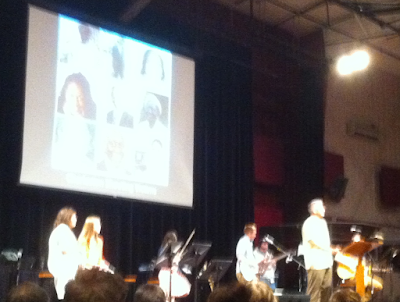The crack in our “liberty and justice for all” has been there all along.
From the moment that a human was placed on a colonial auction block for sale, we were in tragic territory.
Our grand immigrating odyssey to escape religious oppression, our epic fleeing from ethnic oppression, our pioneer yearning for wild open land—it was all fractious, unbeknownst to us, the moment we tolerated humans being shackled in slavery.
’T’was then we became double-minded behind the eloquence of our independence declaration, allowing our rift to lengthen further when we dilly-dallied with terminology of “three-fifths” of a Person in the very first Article of our Constitution. We were already cracked in the head although we knew it not.
We admitted it not.
The reverberation of our ringing liberty signaled a grand, noble experiment in split-personality disorder reverberating from sea to shining sea for all the world to see.
We’ve been evading the issue for 300 years. Freedom was supposed to be our main deal—supposed to be what separated our grand democratic experiment from that ole fuddy-duddy monarchical feudal system back in the old country.
But our guiding principle was splitting from the start. We were cracked in the head, missing a rhetorical point or two, not playing with a full deck, and we didn't even know it.
Or we admitted it not.
We were split in two when we allowed Kansas the legal machinery of enforced servitude while turning Nebraska loose to freely settle the wide open prairie.
Bipolar racism degenerated into suicidal atrocity when we turned George Custer loose to show Sitting Bull who was boss at Little Big Horn. Our cracked cruelty bit the dust that day as the American project descended into new depths of Tragedy.
There has been something wrong with us all along. Our great quest for liberty and justice for all was deformed from the start.
When we denied Dred Scott freedom for himself and his family, we were already on the slippery slopes of failure.
When we allowed the Fugitive Slave Law of 2850 to foil Harriet Tubman’s grand underground railroad project, we were moving in the wrong direction.
Even a goddam civil war did not solve the problem of our schizoid derangement.
No, our Dr. Jekyll/Mr. Hyde malaise persisted past that bloody war; it dragged on into 20th-century malevolence, smoldering beneath pointy-headed sheets; it became set in splittering stone as we raised monuments to the heroes of racist rebellion; it slithered beneath legislative obfuscation of segregation, discrimination, spawning incrimination. . .
Until enforced integration began making a dent in our misdeeds.
Our white privilege hypocrisy was still obstinately taking us one step forward, two steps back in our grand liberty experiment. All along the pathways of freedom, our motivations were rift, double-minded in all our ways as the ancient serpentine spirit of split-nature slithered past Dr. King’s good dream before assassinating him in the process.
Rodney King’s bad roadside dream morphed into a national nightmare; it permeated our personality, sliding into our social media scheme through a blindsiding video of deranged Derek-cop smothering Big Floyd under his knee.
Now, staggering under the influence of a chief executive whose power-hungry pursuit is grounded in an agenda to divide us instead of unite us— so as to conquer once and for all our noble impulse toward justice and equality— we are doomed to another bell-splitting death-knell as all hell breaks loose.
Tragedy! Tragedy! I say unto thee. All is lost! Although founded in liberty, we are steeped in Tragedy! Tragedy!
Then I woke up. What the hell?








